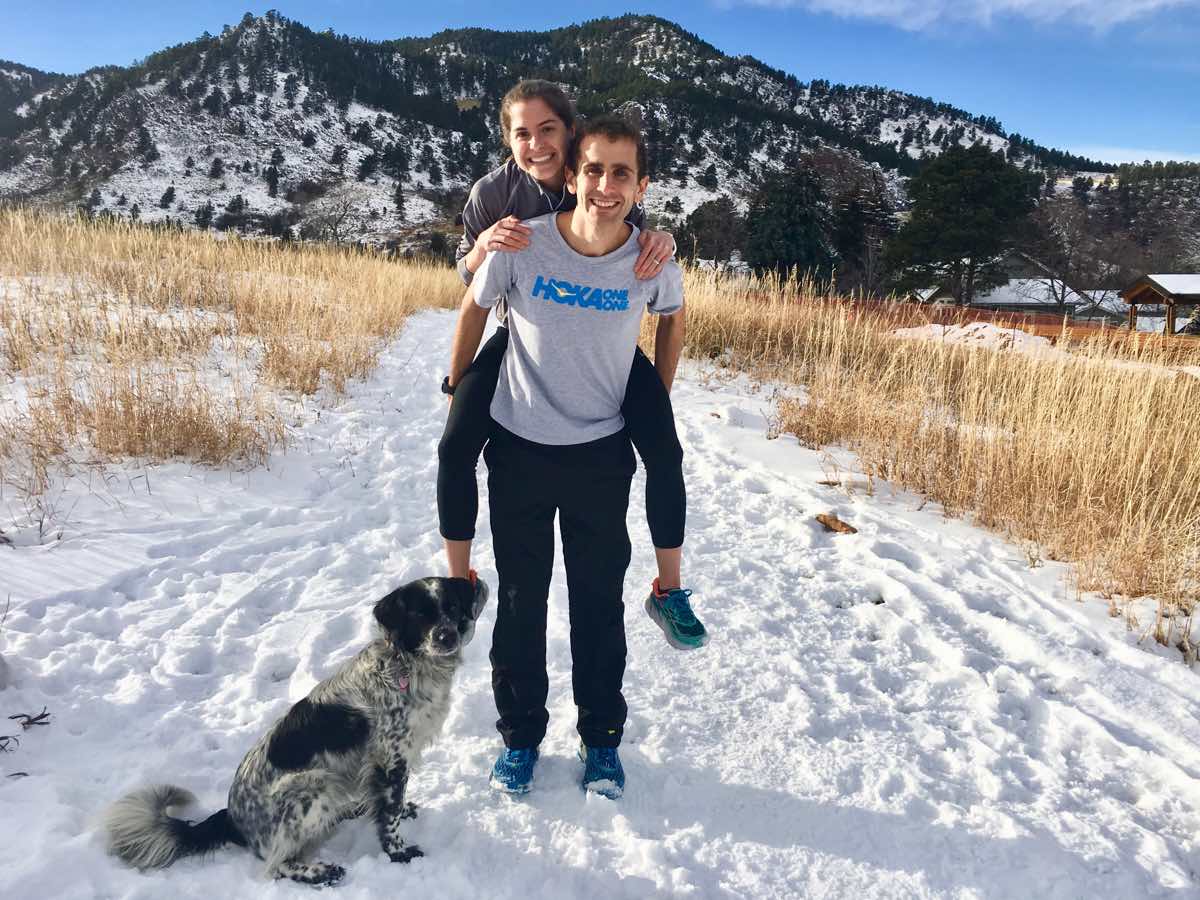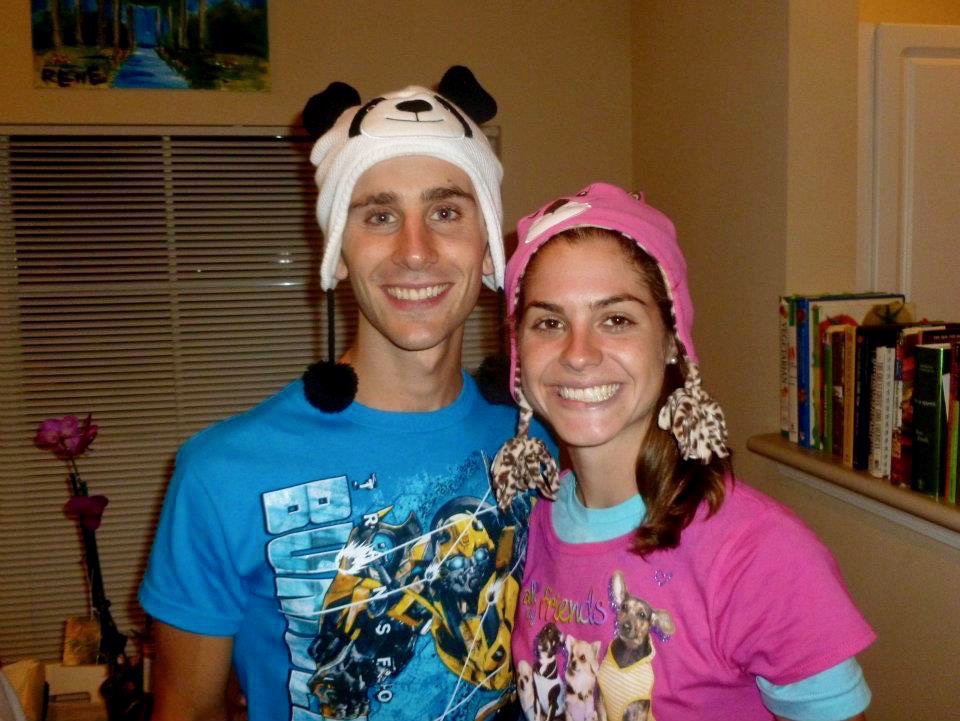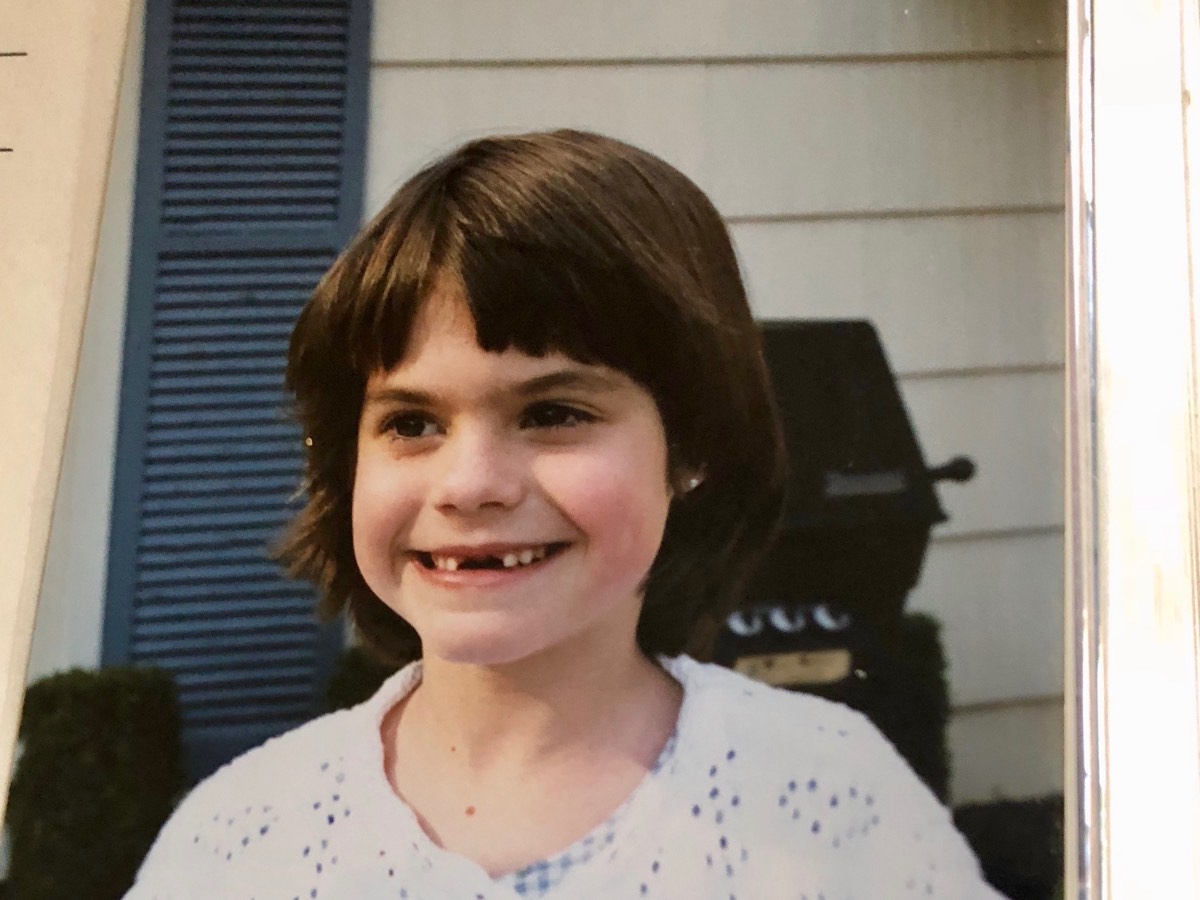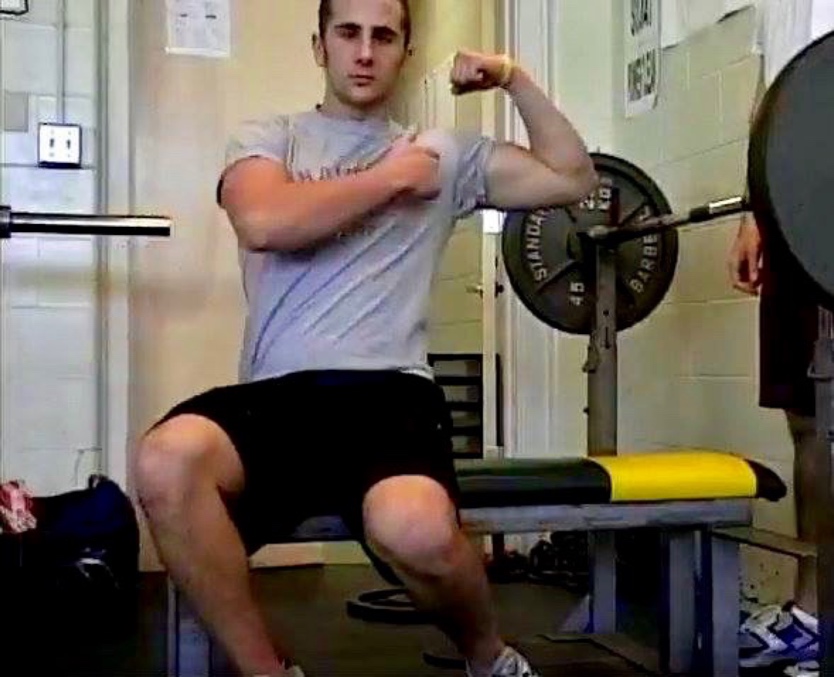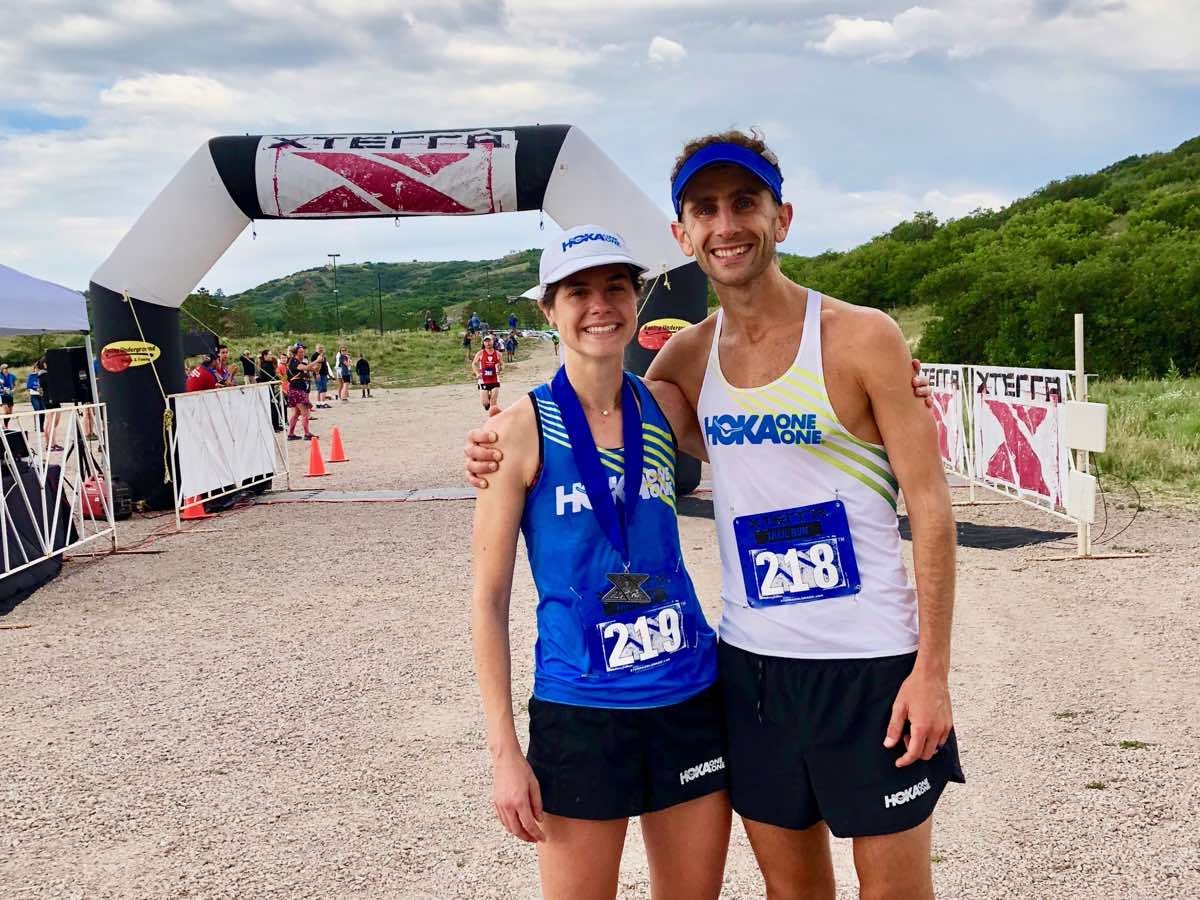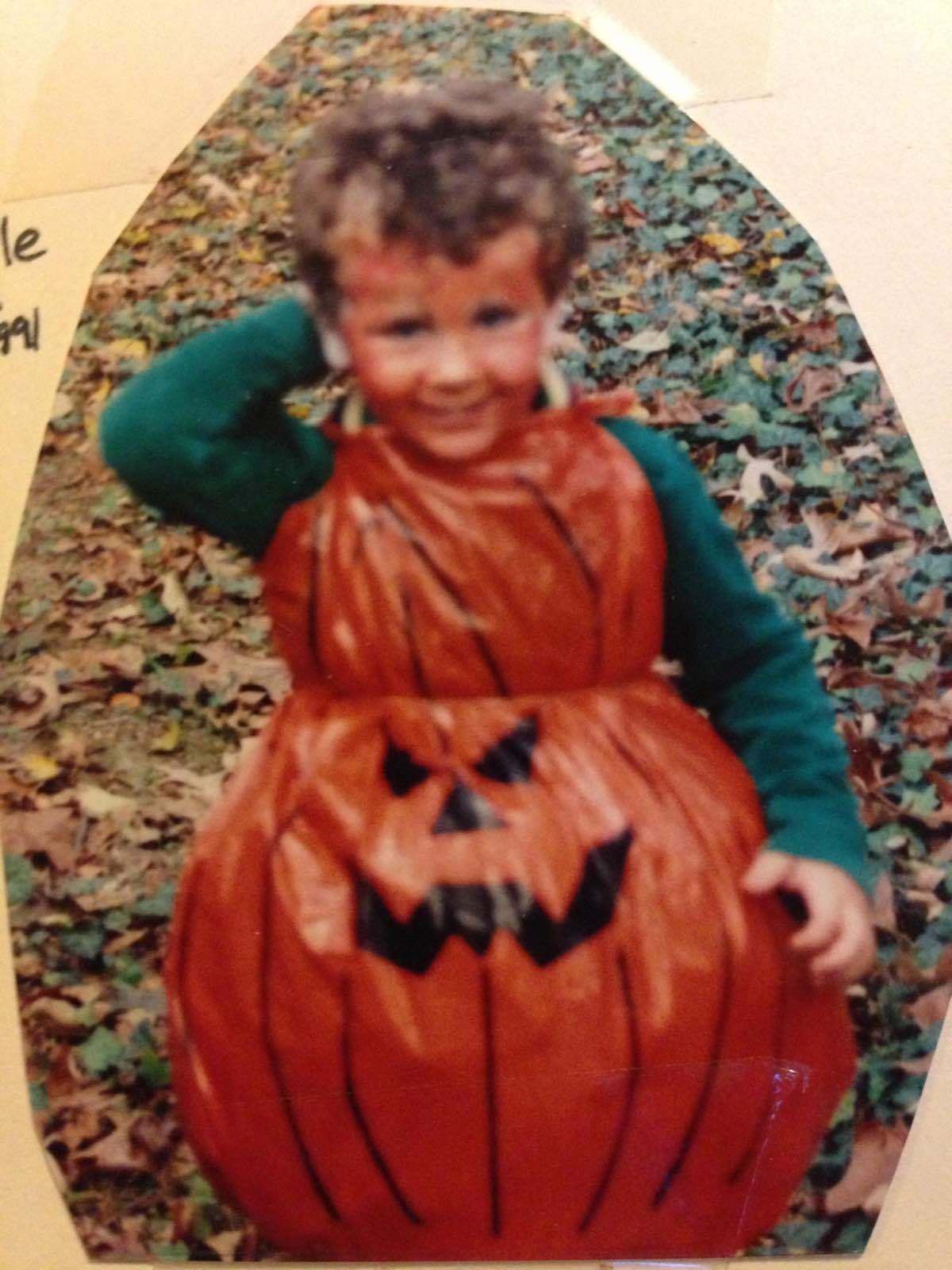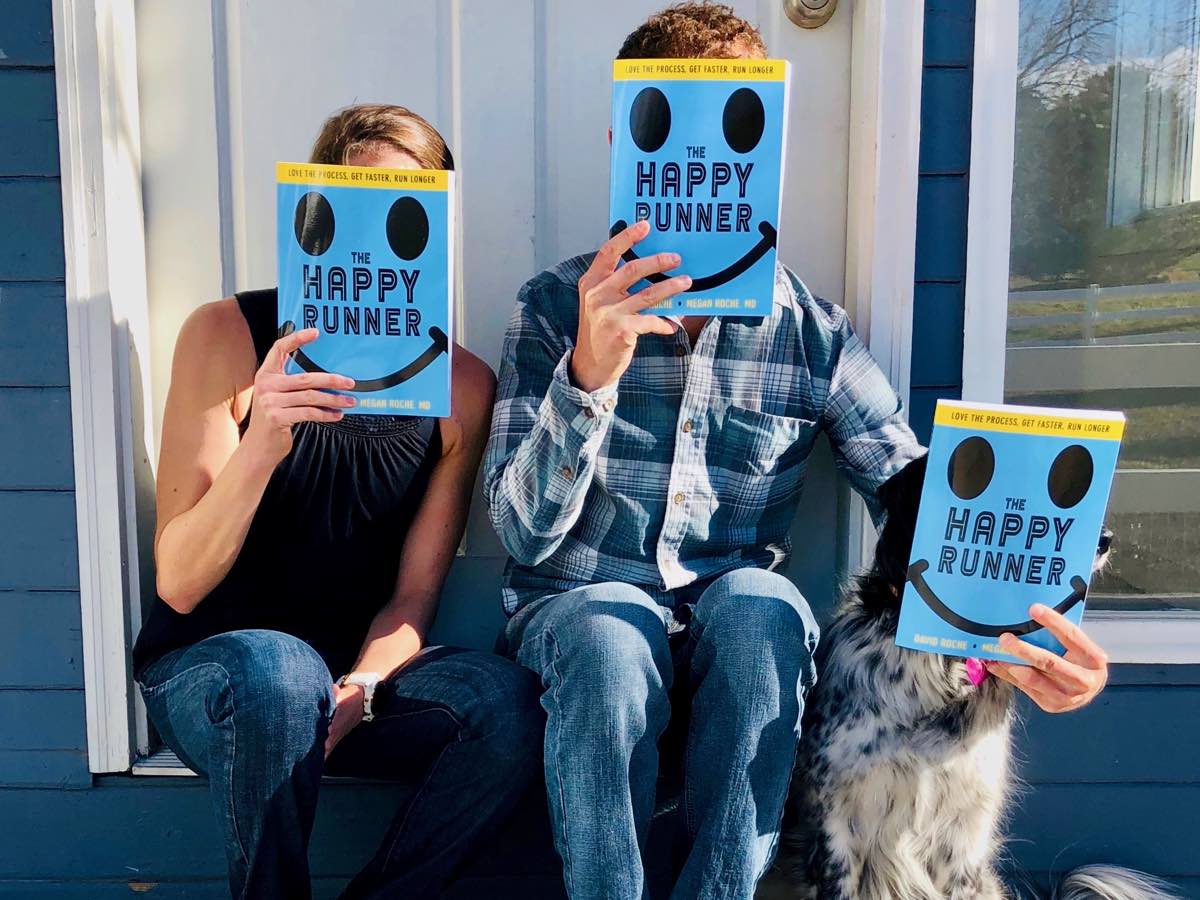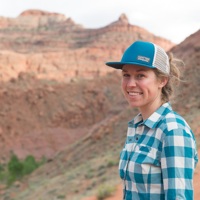[Editor’s Note: Today’s WeRunFar column marks a transition, where we say good-bye to longtime WeRunFar columnist Jessica Campbell, who retires her position with the column after almost 4.5 years and 50 articles, and hello to new WeRunFar columnist Morgan Tilton, an outdoor journalist and writer. Thank you, Jessica, and welcome, Morgan. We so appreciate the dedication each of you have for telling the important stories of our community!]
“We would need a set of hands and several octopuses to count all of my running failures,” says run coach and author David Roche in his essay about a botched race that he had at the 2017 Trail World Championships in Badia Prataglia, Italy. The final 13 miles took him close to four hours to complete—more time than any 50k he’d ever finished. Unfortunately yet fortuitously, Megan Roche—David and Megan are spouses, business partners, each other’s coaches, and co-authors—was having a challenging race day, too. When she saw David, he couldn’t imagine lifting a finger let alone taking a step forward. Megan grabbed a chocolate croissant, pulled David to his feet, and they traveled side-by-side to the finish line.
That epic misadventure is David’s favorite run memory to date.
“I had the worst race of my life. Everything that could have gone wrong, went wrong. I was cramping, Megan waited for me, and now we laugh about that experience—failures are the best stories. That will be my fondest memory when it’s all said and done,” he says.
For the unfamiliar, David has a considerable pool of race accomplishments including at least 36 overall wins, becoming a two-time national champion, and earning the 2014 USATF Sub-Ultra Trail Runner of the Year title. Megan’s resume is just as stout: She was both the 2016 USATF Sub-Ultra and Ultra Trail Runner of the Year. She’s a five-time national champion; the 2016 North American, Central American, and Caribbean (NACAC) Mountain Running Champion; and a six-time member of Team USA.
But as professional runners and coaches, Megan and David Roche are the last people to highlight their accolades. They encourage runners to pursue their A goals but the Roches don’t put race results on a pedestal, which is the backbone of their coaching business, dubbed Some Work, All Play (SWAP).
Blending scientific research and life philosophy, the Roches’ primary focus is to teach runners of all abilities and backgrounds about the exercise of being happy while we run and to not define ourselves by the inevitable rollercoaster along the way. SWAP’s mission is to “develop a good process, motivated by a good why, fueled by kindness, enthusiasm, and belief.”
Universally, we know that running and racing don’t always deliver the elation that we seek: “If you run for results, your happy runner journey is at the mercy of forces you don’t control. It’s okay to care about results, but not to let them define your self-worth as a runner or person. A process-driven running life is the first step to being a happy runner long term. Because you are enough, every day, no matter what,” Megan and David write in The Happy Runner, their first-ever book and newest contribution to the run community, which hit shelves last week.
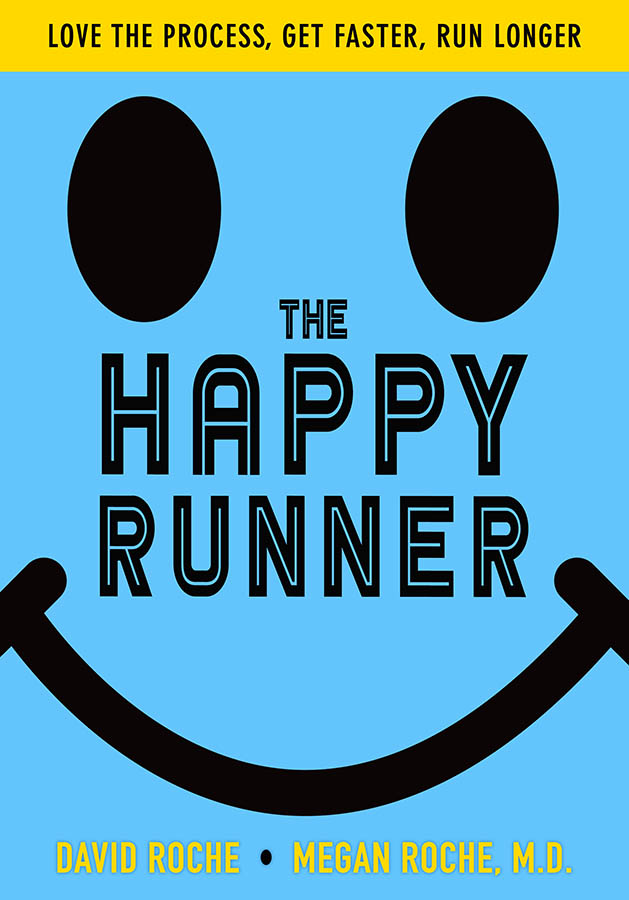 The co-authored release is receiving great reviews. “Part II might change your running. But Part I could, and probably will, change your life: It delves into the reasons why we all run and how we can do it in a way that makes us happier, stronger people—not just stronger runners,” says Josh Fields, a Vermont-based SWAP team member and music teacher who enjoys reading nonfiction running books and already finished The Happy Runner.
The co-authored release is receiving great reviews. “Part II might change your running. But Part I could, and probably will, change your life: It delves into the reasons why we all run and how we can do it in a way that makes us happier, stronger people—not just stronger runners,” says Josh Fields, a Vermont-based SWAP team member and music teacher who enjoys reading nonfiction running books and already finished The Happy Runner.
“Throughout college, I was under a lot of stress, but I was also the stereotypical glass-is-half-empty person in a vocal way. I was overweight and started running. I pretty quickly met David and started being coached,” explains Fields, who was among the original dozen SWAP athletes and has evolved alongside David’s coaching methodology for the past four years. “Aside from the obvious running improvements and fitness gains, I noticed an attitude change…. It wasn’t an abrupt shift. It’s come in pieces. The most recent piece for me is being able to be as positive outwardly—to other people and around other people—as I am introspectively,” says Fields.
SWAP rapidly grew from its nascent stage—when David coached a few runners in 2013—to both Roches coaching recreational and professional athletes across the world. The growth of SWAP is even more impressive given that Megan and David are self-taught coaches and adult-onset runners.
“[SWAP] was small for a year while we learned the ropes. It took time to start to learn what I didn’t know about people, running, and how you can support a person unconditionally. In 2015, a lot of professional athletes started to join and things started to pick up substantially,” says David.
Showing runners how to face adversity with humor is a central piece of their coaching approach, as the book explains. David and Megan choose to experience times of entropy—those inevitable moments in life when a system or situation begins to collapse—with a smile, which never gets easier, they say.
“Our experiences showed us that the key to a sustainable love of the running process was to practice a perspective that supports unconditional self-acceptance in the face of an uncertain running (and life) future. So we started SWAP to provide runners with unconditional support on their journey toward self-acceptance,” Megan and David write.
“You’ll progress, you’ll get a bit worse, you’ll progress some more, and then you’ll gradually decline with age, before eventually dying. At some point in that trajectory, you’ll peak without realizing it, only to have an epiphany one day that your best is behind you. In the face of a chaotic running journey, it’s key to embrace the present no matter where it is. Entropy will win eventually, like it always does, so resolve to enjoy the game while it lasts,” summarizes the book.
The Happy Runner is also a love story about how David and Megan fell for each other—which is the reason we’re here, reading this story, in the first place. The Roches probably wouldn’t be coaches, authors, or even professional trail runners if they hadn’t agreed to grab frozen yogurt on a blind date in Durham, North Carolina, back in 2010.
David ordered potato chips on top of a scoop of chocolate froyo, Megan told him he was weird, they ate their desserts at high velocity, and then they talked for several hours until the servers kicked them out at 11 p.m. For two bookworms—they both stayed home to read novels the night of their senior proms—out way past their bedtime, this was a pretty good sign.
Back then, David and Megan were competitive athletes but weren’t runners by trade. Their first trail run together was a six-mile jaunt-to-bonk followed by a stroll back to the car and inhaling potato chips. David and Megan both had an insatiable curiosity for human physiology—which occupies the margins of running, Megan says—and they started studying training methodology that night.
At the time, Megan was playing collegiate field hockey while earning a neuroscience degree at Duke University in North Carolina. Her senior year, in 2012, she walked onto the track team after field hockey wrapped up. She didn’t have any formal running or training techniques, yet, but she was fit and did fairly well. Mostly, she was excited by the prospect of learning something new, which hooked her to stay in school another year. “I always enjoyed running as a kid and dabbled in high school but it was in the form of wind sprints,” Megan says. So, after finishing her undergraduate degree, she completed a one-year master’s in business program while running cross country and track.
“I was so new to the sport, on a high-level track team, and learning a ton. Since David and I didn’t grow up running on a traditional high-school team, we were both really interested in training and reading a lot about coaching philosophy. We both had science backgrounds and always wanted to know the ‘why’ behind everything,” says Megan.
When David graduated high school, he went to Columbia University in New York to play football. He had a muscular build—he was under six six feet tall and weighed 200 pounds at the time—and his training consisted of sprinting and weightlifting. “As a result, he was a good sprinter and mediocre football player, landing himself a spot on the Columbia football team. Now, stop right there if you think that’s impressive. At the time, Columbia football was one of the worst sports teams in the country, like an opposite-world Harlem Globetrotters, getting dunked on repetitively by opponents in increasingly humorous fashion. Still, David couldn’t cut it for the Washington Generals of college football. So he was left with lots of [fast-twitch] muscle fibers and nothing to do with them unless someone needed help moving their couch,” write David and Megan.
But David’s dad was an endurance athlete, and David had started running recreationally with his parents at 11 years old. After he quit college football, he decided to pursue being an endurance runner. Over the next three years, he lost 60 pounds of muscle and fat.
During that time, David studied environmental science and graduated in 2010. He continued his studies at Duke, simultaneously earning a law degree and a master’s in environmental science in 2013. After he met Megan, the two explored North Carolina on hikes and in restaurants. “We were adventure parters. Running fit into that, but even now we do other things together. Running is one avenue for us to express ourselves, in and out of our relationship, as opposed to something that’s definitional to who we are,” says David.
The year 2013 was a huge year of growth for the couple. The Roches got engaged and adopted their four-legged family member, Addie. Megan dove into an arduous program at Stanford University School of Medicine in California, while David became an attorney at the Environmental Law Institute with a focal point on ocean and coastal governance and community health. “My work took me to communities all over the U.S. including Alaska with a lot of focus on climate-change issues. My projects included everything from on-the-ground sea-level rise adaptation to recovery after an oil spill to working with tribes…. Eventually, I worked remotely from California with Megan—much sooner than I initially expected, because I couldn’t live without her for long,” says David.
Megan was buried in her studies for medical school, so David decided to pick up coaching for fun.
“We charged anywhere from $0 to $30 bucks a month and put [SWAP] on Facebook. Some intrepid souls thankfully agreed. That initial cohort of people is still on the team, years later,” he recalls. Megan became an official coach in 2016, when her schedule shifted and she had more free time, but she acted as David’s soundboard and advisor from the beginning. “Megan was always injecting her brilliance from the medical field into SWAP, and having a partner that is so knowledgeable is the best asset ever,” says David.
The most crucial part of their learning curve as coaches was paying close attention to the athletes and building relationships with each one.
“We learned to coach by doing. From the beginning, we checked in with each athlete everyday, 365 days a year. As a result, you get so many interactions with each individual…. You start to see all of these patterns unfold, which allowed us to learn more rapidly than we would have otherwise. Thankfully, SWAP grew—I guess people said good things,” David says and continues. “SWAP was serendipitous in so many ways. I was doing the law job and talking with athletes but wasn’t doing it with a strategy in mind for SWAP or that we would become coaches to a lot of professional runners. It all just happened and people were taking a chance on us when there wasn’t a reason to.”
Meanwhile, Megan was overcoming her own obstacles and the high pressures that are inherent to medical school.
“I was always the type of person to lean toward perfectionism,” says Megan. “When I met David, I was skeptical of his positivity and thought this can’t last—it’s not sustainable. Two years in, I said, this is the real deal. When he was in middle school, David made a decision that this was how he wanted to live his life. I had to make a conscious decision in medical school to be happy. I made a commitment to enthusiasm and optimism that changed my life,” says Megan. “Mental-health struggles complicate everything [it’s a full chapter of the book], so we try to let people know it’s okay to not be happy too.”
The optimism that we cultivate as people and runners can become an infectious habit. That positive-feedback cycle loops back to you and affects all areas of life, Megan explains.
“There are a lot of scientific studies about being in good state of mind and the effects of long-term performance from smiling. One report says that being positive feeds powerful and consistent performance whereas other emotions like anger can feed performance, but it isn’t sustained,” says Megan, who graduated this year with her Doctor of Medicine and has a continuing role as a Stanford researcher. She’s currently conducting a study on bone health and stress injuries in female runners. Understanding and identifying those risk factors has aided Megan’s coaching and her hope is to help runners prevent negative health cycles or incidents.
Looking ahead, Megan plans to weave together her coaching, running, writing, and scientific research into a career of her own design. It was a tough decision to not apply for medical residency but what made her most happy was clear.
“Medical residency would feed back into running and writing, but if you go into residency, it’s all you can do. I love coaching, running, writing, and research. I’m not ready to sacrifice any of them,” says Megan.
As for Megan’s favorite run memory? She and David recently bought a house in Boulder, Colorado, and the day they moved in, they went on a run out their front door to check out their new-to-them home trails—the weather was also fittingly hellacious.
“There were crazy 50-mile-per-hour winds in the middle of an open field near our house. We were hilariously laughing, and it was David’s birthday. Being giddy and knowing that was where we wanted to spend the rest of our lives made it the best day ever,” says Megan.
In the perspective of the Roches, life’s chaos and challenges never cease or get easy. “If anyone spent a substantial amount of time between our ears, or saw us at 2 a.m. when we can’t sleep, they would know our flaws are ever-present, which all gets back to how you conceive of yourself versus how you conceive of others. The only real truth is that no one has the answers and it’s okay not to,” says David.
But you can laugh, not take yourself too seriously, and make the journey a little easier on yourself and those around you—which is also why David and Megan cultivate inclusivity in the trail running community, encourage SWAP runners to become coaches, and help new coaches through that process. So far, around 15 SWAP runners have started coaching others.
“We’re all staring into the abyss of the universe and we all have same finish line of death,” says David, who envisions coaching and doing his exact day-to-day for the rest of his life. He goes on to explain: “If you think long and hard about that—and a lot of athletes have time to think on their feet and they get a lot of insight through aging and injuries—you realize that entropy will get us all. But by staring into that abyss and laughing—and hopefully you’re laughing with a community like iRunFar—we can find shared compassion, which leads to a perspective of maybe not seeing and appreciating every single rainbow all the time, but instead being generally amazed that rainbows can exist at all.”
Call for Comments (from Meghan)
Calling all Megan and David Roche stories! Leave a comment to share your stories of coaching, racing, running, or friendship with them.
